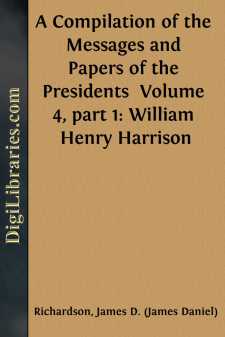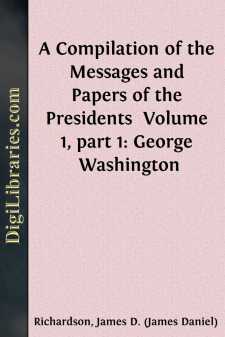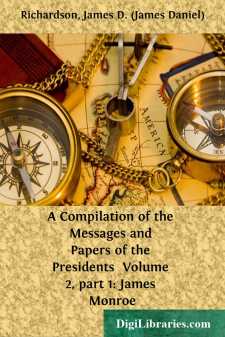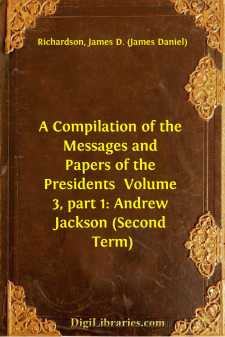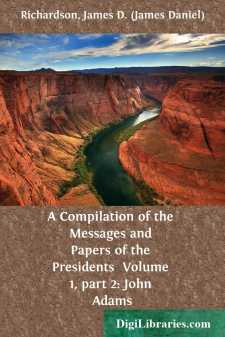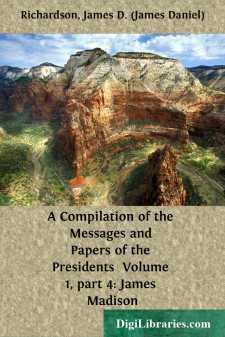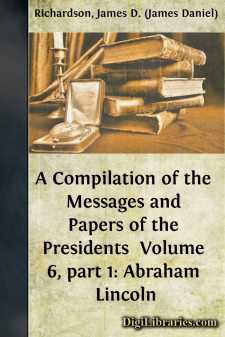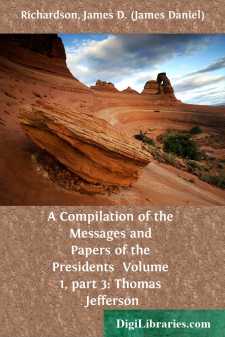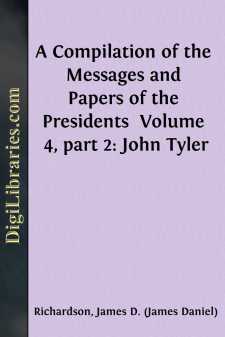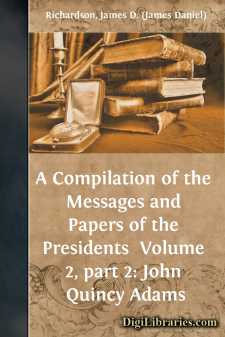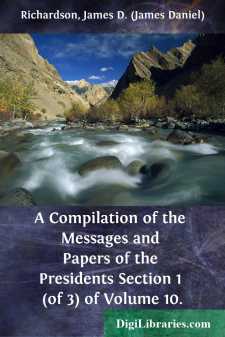Categories
- Antiques & Collectibles 13
- Architecture 36
- Art 48
- Bibles 22
- Biography & Autobiography 813
- Body, Mind & Spirit 142
- Business & Economics 28
- Children's Books 17
- Children's Fiction 14
- Computers 4
- Cooking 94
- Crafts & Hobbies 4
- Drama 346
- Education 46
- Family & Relationships 57
- Fiction 11829
- Games 19
- Gardening 17
- Health & Fitness 34
- History 1377
- House & Home 1
- Humor 147
- Juvenile Fiction 1873
- Juvenile Nonfiction 202
- Language Arts & Disciplines 88
- Law 16
- Literary Collections 686
- Literary Criticism 179
- Mathematics 13
- Medical 41
- Music 40
- Nature 179
- Non-Classifiable 1768
- Performing Arts 7
- Periodicals 1453
- Philosophy 64
- Photography 2
- Poetry 896
- Political Science 203
- Psychology 42
- Reference 154
- Religion 513
- Science 126
- Self-Help 84
- Social Science 81
- Sports & Recreation 34
- Study Aids 3
- Technology & Engineering 59
- Transportation 23
- Travel 463
- True Crime 29
A Compilation of the Messages and Papers of the Presidents Volume 4, part 1: William Henry Harrison
Categories:
Description:
Excerpt
William Henry Harrison
William Henry Harrison, third and youngest son of Benjamin Harrison, one of the signers of the Declaration of Independence, was born at Berkeley, Charles City County, Va., February 9, 1773. Was educated at Hampden Sidney College, Virginia, and began the study of medicine, but before he had finished it accounts of Indian outrages on the western frontier led him to enter the Army, and he was commissioned an ensign in the First Infantry on August 16, 1791; joined his regiment at Fort Washington, Ohio. Was appointed lieutenant June 2, 1792, and afterwards joined the Army under General Anthony Wayne, and was made aid-de-camp to the commanding officer. For his services in the expedition, in December, 1793, that erected Fort Recovery he was thanked by name in general orders. Participated in the engagements with the Indians that began on June 30, 1794, and was complimented by General Wayne for gallantry in the victory on the Miami on August 20. On May 15, 1797, was made captain and given the command of Fort Washington. While there he married Anna, daughter of John Cleves Symmes. Resigned his commission on June 1, 1798, peace having been made with the Indians, and was immediately appointed by President John Adams secretary of the Northwest Territory, but in October, 1799, resigned to take his seat as Territorial Delegate in Congress. During his term part of the Northwest Territory was formed into the Territory of Indiana, including the present States of Indiana, Illinois, Michigan, and Wisconsin, and he was appointed its governor and superintendent of Indian affairs, which he accepted, and resigned his seat in Congress. Was reappointed successively by Presidents Jefferson and Madison. He organized the legislature at Vincennes in 1805. Held frequent councils with the Indians, and succeeded in averting many outbreaks. On September 30, 1809, concluded a treaty with several tribes by which they sold to the United States about 3,000,000 acres of land on the Wabash and White rivers. This and former treaties were condemned by Tecumseh and other chiefs, and an outbreak became imminent, which was averted by the conciliatory course of the governor. In the spring of 1811 Indian depredations became frequent, and Governor Harrison recommended the establishment of a military post at Tippecanoe, and the Government consented. On September 26 Harrison marched from Vincennes with about 900 men, including 350 regular infantry, completed Fort Harrison, near the site of Terre Haute, Ind., on October 28, and leaving a garrison there pressed on toward Tippecanoe. On November 6, when near that town, was met by messengers demanding a parley, and a council was proposed for the next day. At 4 o'clock the following morning a fierce attack was made by the savages; at daybreak the Indians were driven from the field. For this victory he was highly complimented by President Madison in his message of December 18, 1811, and was also thanked by the legislatures of Kentucky and Indiana. On August 25, 1812, soon after war was declared against Great Britain, was commissioned major-general of the militia of Kentucky, though not a citizen of that State....


